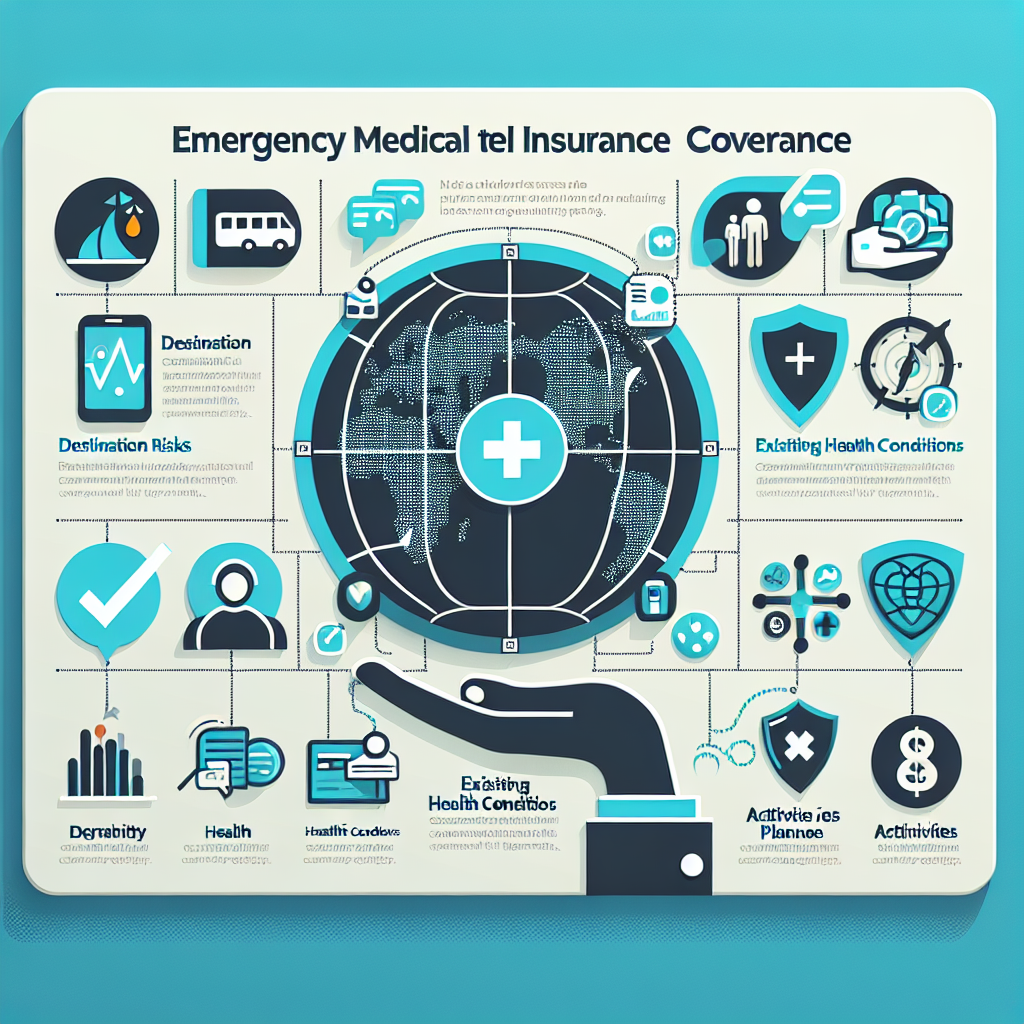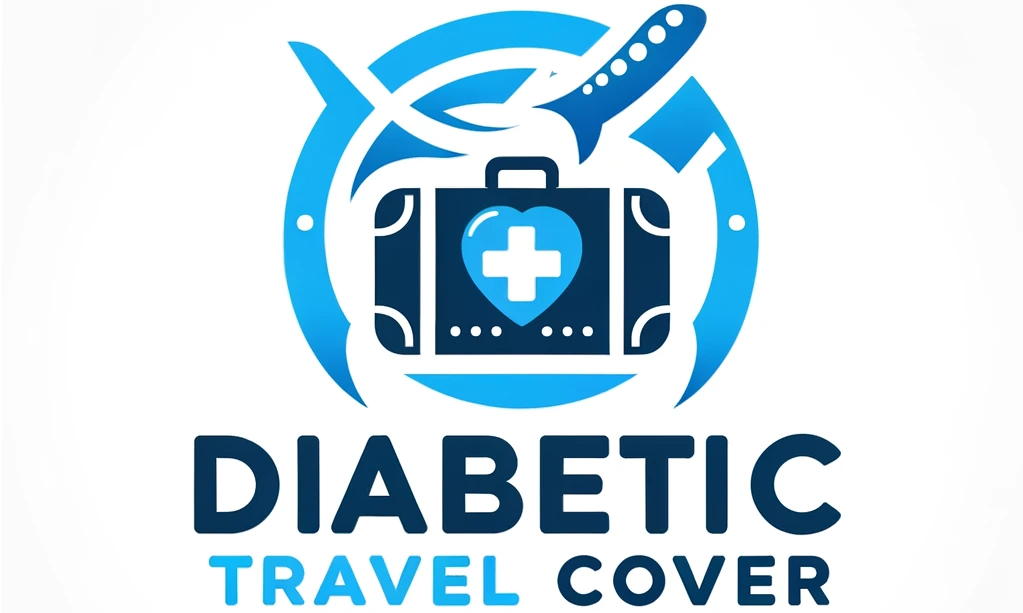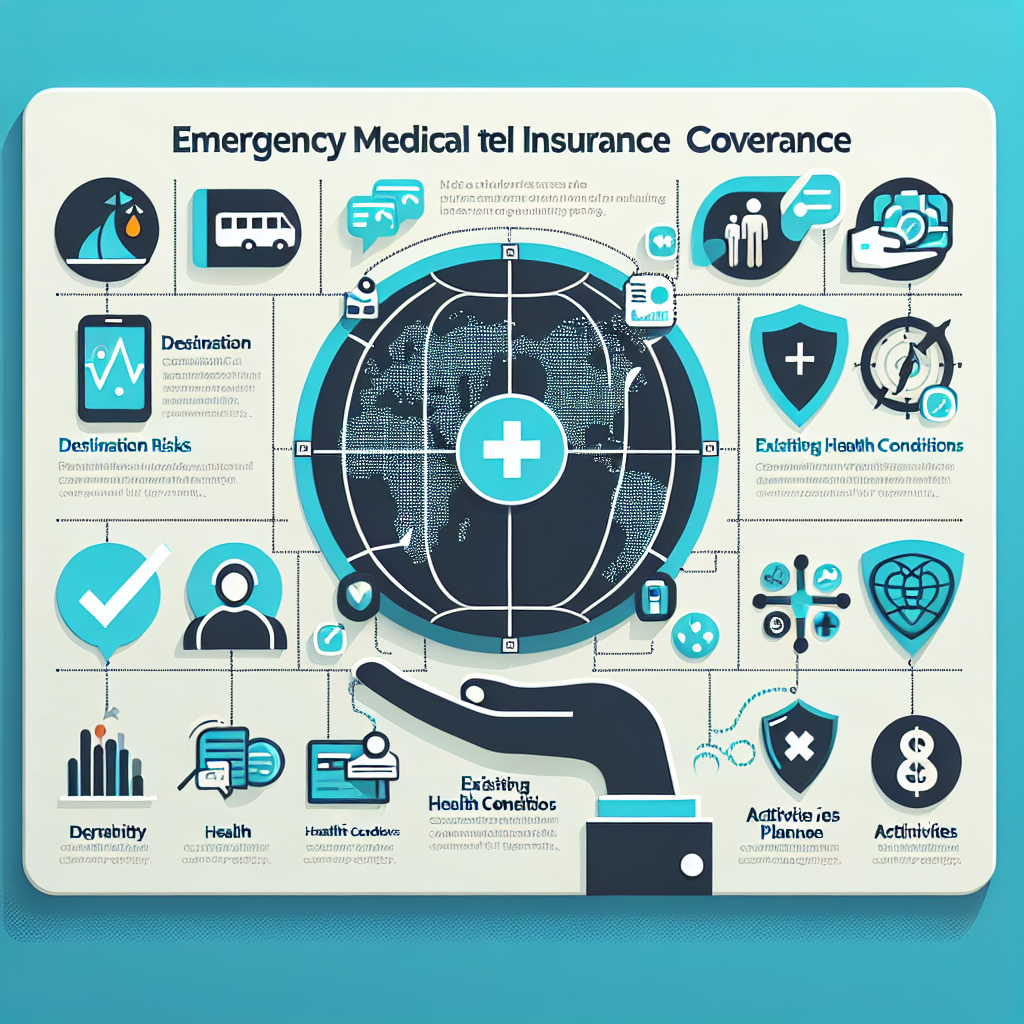Are you planning an upcoming trip and wondering how much emergency medical travel insurance you should get? It’s an important question to consider before embarking on your journey. While we can’t predict accidents or illnesses, having the right amount of medical coverage can provide peace of mind and protect you from unexpected expenses. In this article, we will explore factors to consider when determining the appropriate level of emergency medical travel insurance for your needs, so you can travel with confidence knowing you are adequately protected.
Factors to Consider
When considering the purchase of travel insurance, there are several important factors to take into account. These factors can greatly impact the type and level of coverage you should opt for. By carefully evaluating these factors, you can ensure that you have adequate coverage to protect yourself during your trip. Here are the key factors to consider:
Healthcare Costs in Destination
One of the most important considerations when choosing travel insurance is the healthcare costs in your destination. Different countries have varying healthcare systems and the expenses associated with medical treatment can vary significantly. It is crucial to research the average cost of healthcare in your destination, including hospital stays, doctor visits, and medication costs. This will help you determine the level of coverage you may require.
Duration of Trip
The duration of your trip is another crucial factor to take into account when selecting travel insurance. If you are planning a short-term trip, such as a vacation, you may only need coverage for a limited period. On the other hand, if you are embarking on a long-term journey, such as a study abroad program or an extended vacation, you will need coverage for a longer duration. Consider the length of your trip carefully and choose a policy that aligns with your needs.
Potential Risks and Hazards
Assessing the potential risks and hazards associated with your destination is essential for choosing the right travel insurance policy. Research the safety and security of the country you plan to visit, as well as any specific health risks or natural disasters that may be prevalent. Additionally, consider the types of activities or sports you plan to engage in during your trip, as these may carry their own set of risks. By identifying potential risks, you can select a policy that provides coverage for those specific instances.
Existing Health Conditions
If you have any existing health conditions, it is crucial to take them into account when choosing travel insurance. Pre-existing medical conditions can greatly impact the type and level of coverage you may require. Consider the specific needs and potential costs associated with managing your conditions while abroad. This may include medication requirements, specialist treatments, or potential emergencies related to your underlying health conditions.
Age and Health
Your age and current health status are important factors to consider when selecting travel insurance. Different age groups may have varying medical needs or be at a higher risk of certain health issues. Senior travelers, for example, may require additional coverage for age-related conditions or specific medical services. Similarly, pregnant women and children may have distinct healthcare requirements. Evaluate your age and health carefully to determine the level of coverage that best suits your needs.
Level of Coverage Offered
When considering travel insurance, it is essential to evaluate the level of coverage offered by different policies. Basic emergency medical coverage is the minimum requirement for most travelers, providing coverage for unexpected medical emergencies. However, comprehensive coverage offers additional benefits such as trip cancellation or interruption, baggage loss, and emergency medical evacuation. Consider the level of coverage that aligns with your needs and offers the necessary protection.
Budget Constraints
Budgetary constraints are an important consideration for many travelers when selecting travel insurance. It is crucial to assess the affordability of insurance premiums and any potential deductibles or co-payments. While it may be tempting to opt for the cheapest policy available, it is important to ensure that the coverage provided meets your needs adequately. Analyze your budget constraints carefully and choose a policy that strikes a balance between affordability and coverage.
Personal Risk Tolerance
Another factor to consider is your personal risk tolerance. Some individuals may have a higher risk tolerance and be comfortable with minimal coverage, relying on their own financial resources in case of emergencies. Others may prefer to have comprehensive coverage to provide peace of mind and financial security. Evaluate your personal risk tolerance and choose a policy that aligns with your comfort level.
Emergency Evacuation Considerations
Emergency evacuation considerations are crucial, particularly when traveling to remote or high-risk areas. Evaluate the availability and cost of emergency medical evacuation coverage in your travel insurance policy. This coverage ensures that you will be transported to the nearest suitable medical facility in the event of a serious illness or injury. Consider the potential risks associated with your destination and the availability of emergency evacuation services.
Travel Activities and Sports
Lastly, consider the specific travel activities or sports you plan to engage in during your trip. Different activities carry varying levels of risk and may require specific coverage. For example, if you plan to partake in extreme sports or adventure activities like skydiving or bungee jumping, you may need additional coverage for potential injuries. Similarly, if you plan to engage in water sports or scuba diving, coverage for any accidents or medical emergencies related to these activities should be included. Evaluate your planned activities and choose a policy that provides adequate coverage for those specific instances.
Assessing Healthcare Costs in Destination
When it comes to assessing healthcare costs in your destination, conducting thorough research is essential. Here are the key steps to take when evaluating healthcare costs:
Researching Local Healthcare Costs
Before setting off on your trip, take the time to research the local healthcare costs in your destination. Consider factors such as the cost of doctor visits, hospital stays, and prescription medications. This information will give you a better understanding of the potential expenses you may encounter and help you select appropriate coverage.
Comparing Public and Private Healthcare
Different countries have varying healthcare systems, and it is important to understand the differences between public and private healthcare. Research whether your destination has a public healthcare system or relies primarily on private healthcare providers. This will help you determine the level of medical care available and the associated costs.
Identifying Potential Out-of-Pocket Expenses
While travel insurance can provide coverage for many healthcare costs, it is important to be aware of any potential out-of-pocket expenses you may still be responsible for. Deductibles, co-payments, and non-covered services are examples of expenses that may not be fully covered by your insurance policy. Identify these potential out-of-pocket costs to ensure you have a clear understanding of your financial responsibilities.
By thoroughly researching healthcare costs in your destination, comparing public and private healthcare options, and identifying potential out-of-pocket expenses, you can make an informed decision when selecting travel insurance.

Evaluating the Duration of Trip
The duration of your trip plays a significant role in determining the type of travel insurance you need. Here are the main considerations when evaluating the duration of your trip:
Short-Term Travel Insurance
If you are embarking on a short-term trip, such as a two-week vacation or a business trip, short-term travel insurance may be sufficient. Short-term policies typically provide coverage for the duration of your trip and can be a cost-effective option. These policies offer basic emergency medical coverage and often include benefits such as trip cancellation or interruption, baggage loss, and travel delay coverage.
Long-Term Travel Insurance
For travelers planning an extended journey, such as studying abroad or taking a sabbatical, long-term travel insurance may be more suitable. Long-term policies are designed to provide coverage for trips lasting several months to a year or longer. These policies offer comprehensive medical coverage and often include additional benefits such as emergency medical evacuation, repatriation of remains, and coverage for pre-existing medical conditions.
By evaluating the duration of your trip and considering your specific needs, you can choose a travel insurance policy that aligns with the length of your journey.
Considering Potential Risks and Hazards
When selecting travel insurance, it is essential to take into account the potential risks and hazards associated with your destination. Here are the key considerations in assessing potential risks:
Safety and Security of Destination
Ensure you thoroughly research the safety and security of your destination. Check travel advisories and government-issued warnings to understand any potential risks. Factors such as political unrest, high crime rates, or terrorist activities may impact the safety of travelers. Select a travel insurance policy that provides coverage for emergency medical treatment in case of any unforeseen incidents.
Common Health Risks
Different destinations may pose specific health risks that travelers should be aware of. Research common health risks in your destination, such as infectious diseases or prevalent illnesses. It is advisable to choose a travel insurance policy that covers the costs of treatment for these common health risks.
Natural Disasters and Climate
Consider the potential for natural disasters or extreme weather events in your destination. Some areas are prone to earthquakes, hurricanes, or extreme temperatures. If you are traveling to such a destination, it is important to select a travel insurance policy that includes coverage for natural disasters or climate-related emergencies.
Accident-Prone Activities
If you plan to engage in accident-prone activities during your trip, such as skiing, hiking, or water sports, it is crucial to ensure your travel insurance covers these activities. Many insurance policies have exclusions for certain high-risk activities, so it is important to review the terms and conditions carefully. If necessary, consider purchasing additional coverage or specialized sports insurance to adequately protect yourself.
By carefully considering potential risks and hazards, you can select a travel insurance policy that offers the necessary coverage for your specific destination and activities.

Analyzing Existing Health Conditions
If you have any existing health conditions, it is crucial to consider them when choosing travel insurance. Here are the main factors to analyze:
Pre-Existing Medical Conditions
If you have pre-existing medical conditions, it is essential to choose a travel insurance policy that provides coverage for these conditions. Some policies may exclude coverage for pre-existing conditions, while others may offer limited coverage or require additional premium payments. Review the policy terms and conditions to determine the extent of coverage provided for pre-existing medical conditions.
Chronic Illnesses
For individuals with chronic illnesses, it is important to select a travel insurance policy that provides coverage for ongoing medical treatments and medications. Ensure that the policy covers the costs of necessary medical expenses related to your chronic illness, including regular check-ups, specialist visits, and prescription medications.
Medication Requirements
If you require prescription medications, it is crucial to consider coverage for medication expenses when choosing travel insurance. Check whether the policy covers the cost of medications, including refills or replacements while abroad. Additionally, ensure that you have a clear understanding of any restrictions or requirements related to carrying medications across borders.
Specialist Treatments
If you require specialist treatments or medical services that may not be readily available in your destination, it is important to choose a travel insurance policy that provides coverage for these services. Evaluate the availability of specialized healthcare facilities and check whether your insurance policy offers coverage for out-of-network providers or medical referrals.
By analyzing your existing health conditions and understanding the specific coverage needed, you can select a travel insurance policy that adequately addresses your medical requirements.
Assessing Age and Health
The age and current health status of travelers are important factors to consider when selecting travel insurance. Here are the main considerations when evaluating age and health:
Senior Travelers
Senior travelers may have specific healthcare needs and considerations. It is important to evaluate the coverage options available for age-related conditions, such as heart disease, diabetes, or arthritis. Additionally, consider the availability and cost of emergency medical evacuation services, as seniors may be at a higher risk of medical emergencies while traveling. Choose a travel insurance policy that provides comprehensive coverage tailored to the specific needs of seniors.
Youth and Children
Children and young travelers require specialized coverage to meet their unique healthcare needs. It is important to select a policy that provides coverage for routine pediatric care, immunizations, and potential medical emergencies. Additionally, consider issues such as child-friendly hospital facilities and the availability of pediatric specialists in your destination.
Pregnant Women
Pregnant women should carefully consider their insurance options when planning a trip. It is crucial to select a travel insurance policy that covers potential complications or medical emergencies related to pregnancy. Additionally, check whether the policy covers pregnancy-related care, including prenatal visits, ultrasounds, or potential premature labor.
Health Conditions and Aging
As individuals age, they may be more susceptible to certain health conditions. Consider any age-related health issues you may have when selecting travel insurance. Evaluate the coverage options for conditions such as high blood pressure, osteoporosis, or vision and hearing problems. Choose a policy that provides adequate coverage for age-related health concerns.
By carefully assessing age and health considerations, travelers can select a travel insurance policy that meets their specific needs and provides adequate coverage for potential medical issues.

Evaluating the Level of Coverage Offered
When choosing travel insurance, it is important to evaluate the level of coverage offered. Here are the main aspects to consider:
Basic Emergency Medical Coverage
Basic emergency medical coverage is the minimum requirement for most travelers. This coverage typically includes expenses related to emergency medical treatment, hospital stays, and doctor visits. It ensures that you are financially protected in case of unexpected medical emergencies while abroad. Review the details of the coverage offered and ensure it meets your specific requirements.
Comprehensive Coverage
For those seeking more extensive coverage, comprehensive travel insurance policies are available. These policies often include additional benefits such as trip cancellation or interruption coverage, lost luggage coverage, and travel delay coverage. Comprehensive policies provide broader protection and are suitable for travelers who want peace of mind and additional financial security.
Coverage for Emergency Dental Treatment
Dental emergencies can occur while traveling and can be costly to resolve. Some travel insurance policies provide coverage for emergency dental treatment, ensuring you are protected in the event of a dental emergency. Assess whether you require coverage for dental issues and select a policy that includes this benefit if needed.
By evaluating the level of coverage offered, you can select a travel insurance policy that provides the necessary protection based on your specific needs.
Considering Budget Constraints
Budget constraints are an important consideration for many travelers when selecting travel insurance. Here’s what to consider:
Deductibles and Co-payments
Insurance policies often have deductibles and co-payments, which require you to share in the cost of medical expenses. Evaluate the deductibles and co-payments associated with different travel insurance options and determine what you can comfortably afford.
Affordability of Premiums
Insurance premiums are another key aspect to consider when budgeting for travel insurance. The cost of premiums can vary significantly depending on the level of coverage and the length of the trip. Analyze your budget and determine how much you can allocate towards travel insurance premiums.
Percentage of Coverage
Different travel insurance policies offer varying percentages of coverage for different medical services. It is important to consider the percentage of coverage provided for emergency medical treatment, hospital stays, or specialist visits. Evaluate whether the coverage offered aligns with your budgetary constraints.
By considering your budget constraints, including deductibles, co-payments, premiums, and the percentage of coverage provided, you can select a travel insurance policy that offers the necessary protection while remaining affordable.

Analyzing Personal Risk Tolerance
Personal risk tolerance varies among individuals and can impact the type and level of travel insurance coverage chosen. Consider the following aspects:
Peace of Mind and Financial Security
For some travelers, the peace of mind and financial security offered by comprehensive travel insurance outweigh the costs. They prefer to have extensive coverage to ensure they are protected against any unforeseen circumstances. If you value peace of mind and financial security while traveling, opt for comprehensive coverage.
Acceptable Level of Risk
On the other hand, some travelers may have a higher risk tolerance and be comfortable with minimal coverage. They may rely on personal financial resources to cover potential medical expenses. If you have a higher level of risk tolerance and prefer to manage unforeseen circumstances on your own, you may choose basic emergency medical coverage rather than comprehensive coverage.
By analyzing your personal risk tolerance, you can choose a travel insurance policy that aligns with your comfort level and provides the desired level of protection.
Taking Travel Activities and Sports into Account
The specific travel activities and sports you plan to engage in during your trip should also be considered when selecting travel insurance. Here are the main considerations:
Extreme Sports and Adventure Activities
If you plan to participate in extreme sports or adventure activities, it is crucial to ensure your travel insurance policy provides coverage for potential injuries or accidents related to these activities. Skydiving, bungee jumping, or rock climbing are examples of high-risk activities that may require additional coverage. Review the policy terms and conditions to verify the coverage offered for such activities.
Water Sports and Diving
Water sports and scuba diving are popular activities for many travelers. If you plan to participate in these activities, it is important to select a travel insurance policy that covers accidents or injuries related to water-based activities. Verify whether the policy provides coverage for emergency medical treatment, transportation to a suitable medical facility, and potential diving-related emergencies.
Motorcycle or Scooter Riding
Renting scooters or motorcycles is a common mode of transportation in many tourist destinations. However, accidents and injuries can occur while riding these vehicles, particularly in unfamiliar environments. It is essential to ensure your travel insurance policy provides coverage for accidents or injuries related to motorcycle or scooter riding.
Hazardous Work or Volunteer Activities
If you plan to engage in hazardous work or volunteer activities during your trip, it is crucial to choose a travel insurance policy that covers potential injuries or accidents related to these activities. Examples of hazardous work or volunteer activities include construction work, medical volunteer programs, or wildlife conservation projects. Verify the coverage offered for these specific activities to ensure you are adequately protected.
By taking into account the specific travel activities and sports you plan to engage in, you can select a travel insurance policy that provides appropriate coverage for any potential accidents or injuries.
In conclusion, the process of selecting travel insurance involves evaluating several important factors. Considerations such as healthcare costs in the destination, the duration of the trip, potential risks and hazards, existing health conditions, age and health, the level of coverage offered, budget constraints, personal risk tolerance, emergency evacuation considerations, and planned travel activities and sports all play a role in determining the appropriate travel insurance policy. By thoroughly assessing these factors and understanding your specific needs, you can make an informed decision and ensure you have adequate coverage to protect yourself during your trip. Remember, peace of mind and financial security are important when traveling, so choose a policy that aligns with your comfort level and provides the necessary protection.


